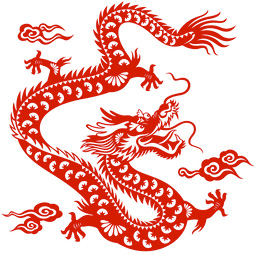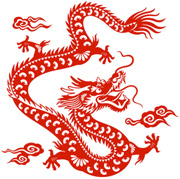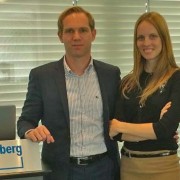Presentation at Freudenberg Group, Weinheim, Germany
On April, 23rd we had the great honor to be invited to hold a speech at Freudenberg’s group headquarter in Weinheim, Germany. It was a pleasure to speak about China’s economic and social development in front of more than 100 Freudenberg enployees. We enjoyed the great atmosphere and lively discussions. Thank you!
Please see below the Freundenberg’s internal note about our event as published on the intranet.
Freudenberg manager offers an insight into living and working in China
Create a harmonious environment, allow your counterpart to save face and build relationships. If you observe this “magic triangle” in your dealings, then there is a good chance that you will be successful in China – both during your day-to-day business and also in private. That was one of the tips offered by Freudenberg manager Dr. Henk Randau and his partner Olga Medinskaya during a talk in Weinheim on “China Business 2.0”.
In front of around 100 Freudenberg employees, including Management Board member Dr. Tilmann Krauch, they spoke about their experiences in the Chinese city of Suzhou, which is approximately 110 km away from Shanghai. Randau spent three years there as Chief Financial Officer (CFO) at Freudenberg & Vilene Nonwovens, a Joint Venture involving more than 500 employees. During this time, he and Medinskaya dealt extensively with the economic and social conditions that they faced in China, as well as the country’s social framework and challenges – topics that were relevant for other executives also. “My colleagues faced the same issues that I did”, said Randau. This motivated him to write a guide for those managers and decision-makers from the West who do business in China or with China.
He and Medinskaya took the audience on an entertaining journey through the Chinese economy, society and culture. They illustrated the remarkable developments made over the past 30 years, which have succeeded in making China the second-largest major economy after the USA. At the same time, Randau made it clear that “during this rapid development, which it took Europe 150 years to achieve, things have
by no means always gone smoothly”. China is a “country of regions” featuring a variety of different languages and cultures. He advised all marketing executives to tailor campaigns to the relevant regions.
Cultural knowledge about China
According to Randau, human resources managers also need to consider social rules such as the “Hukou” system. “Hukou” is the registered residence system for Chinese citizens. If they wish to move then they need to apply for their “Hukou” to be changed – similar to moving from one European country to another. However, this is often only granted on a temporary basis, explained Randau. Without “Hukou”, they have no right to education or healthcare. This is why lots of Chinese children grow up in the countryside with their grandparents, while their parents go to work in the city.
Did you know that most posts on Chinese social networks revolve around food? The reason for this is that food and well-being are closely intertwined. “Ni chi le ma?” – which essentially means “How are you?” – literally translates as “Have you eaten yet today?”. People take an interest in others. “China is a collective society”, said Medinskaya, “unlike the individualistic systems that you find in Germany or the USA.” This made it easier to fit in. “We received lots of help and support.”
Krauch, who spent several years living and working in Hong Kong, confirmed this. He too found Chinese society very open-minded, young and positive. The talk was followed by a lively discussion. With regard to the question of how to achieve quick results, given the reserved nature of Chinese business partners, this was the clear response from both speakers: “By building relationships.” Sometimes it’s not the most direct approach that leads to success. You need to learn how to interpret the signals. Taking a look through the guidebook “China Business 2.0” will help you achieve this.



